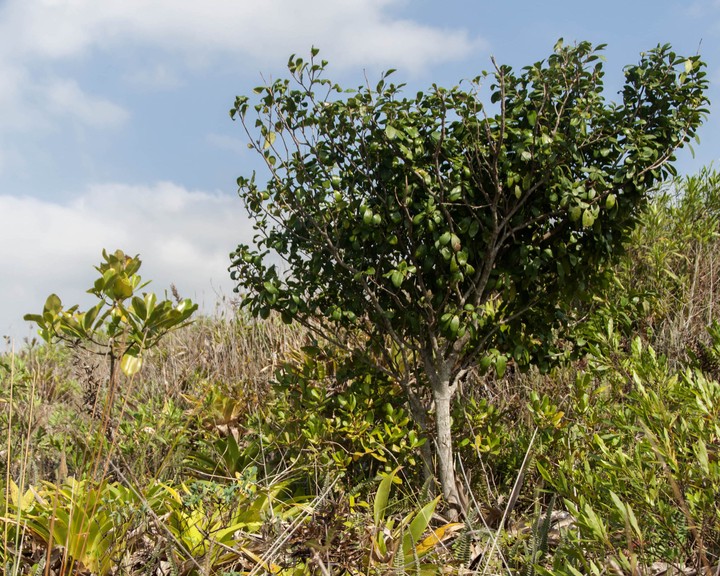Facilitation influences patterns of perennial species abundance and richness in a subtropical dune system
 Image credit: Rafael Barbizan Sühs
Image credit: Rafael Barbizan Sühs
Abstract
Positive interactions in plant communities are underreported in subtropical systems most likely because they are not identified as stressful environments. However, environmental factors or disturbance can limit plant growth in any system and lead to stressful conditions. For instance, salinity and low nutrient and water availability generate a gradient of stressful conditions in coastal systems depending on distance to shore. In a tropical coastal system in SE Brazil, we aimed to assess whether Guapira opposita, a shrub common in restinga environments, acted as nurse involved in ecological succession and which factors influenced its facilitation process. We sampled perennial species above 10 cm in height under the canopy of thirty-five G. opposita individuals and in neighboring open areas. Shrub height, canopy area, and distance to freshwater bodies were measured in the field, and distance to the ocean was obtained from aerial images. In addition, we measured the distance to the closest forest patch as a potential source of seeds. Plant abundance and species richness were higher under the canopy of G. opposita than in open areas. Facilitation by G. opposita was mainly determined by shrub height, which had a positive relationship with woody and bromeliads abundance and species richness while there was no relationship with distance to water bodies or to forest patches. Overall, our data evidence that tropical environments may be highly stressful for plants and that nurse species play a key role in the regeneration of restinga environments, where their presence is critical to maintain ecosystem diversity and function.